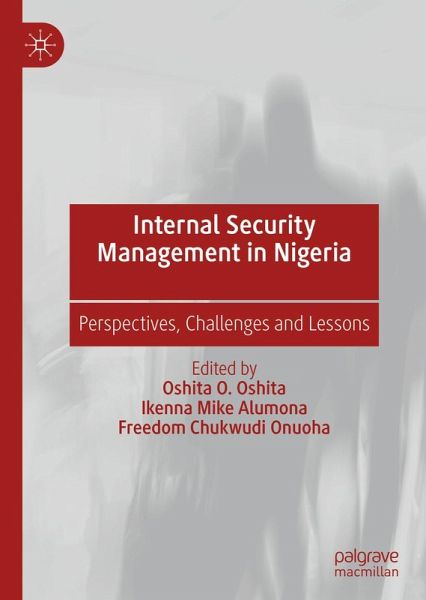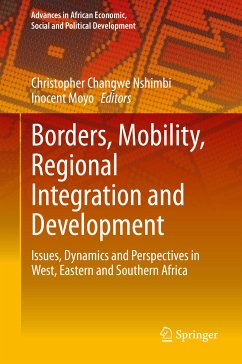
Internal Security Management in Nigeria (eBook, PDF)
Perspectives, Challenges and Lessons
Redaktion: Oshita, Oshita O.; Onuoha, Freedom Chukwudi; Alumona, Ikenna Mike
Versandkostenfrei!
Sofort per Download lieferbar
136,95 €
inkl. MwSt.
Weitere Ausgaben:

PAYBACK Punkte
68 °P sammeln!
This book explores the disturbing dimensions of the problem of insecurity in Nigeria, such as herdsmen violence, the Boko Haram insurgency, cybercrime, militancy in the Niger Delta, communal conflict and violence, as well as police corruption. It offers a comprehensive discussion of the theoretical foundations of internal security, the threats to internal security, the role of formal and informal agencies in internal security management and the challenges of internal security management.
Dieser Download kann aus rechtlichen Gründen nur mit Rechnungsadresse in A, B, BG, CY, CZ, D, DK, EW, E, FIN, F, GR, HR, H, IRL, I, LT, L, LR, M, NL, PL, P, R, S, SLO, SK ausgeliefert werden.












